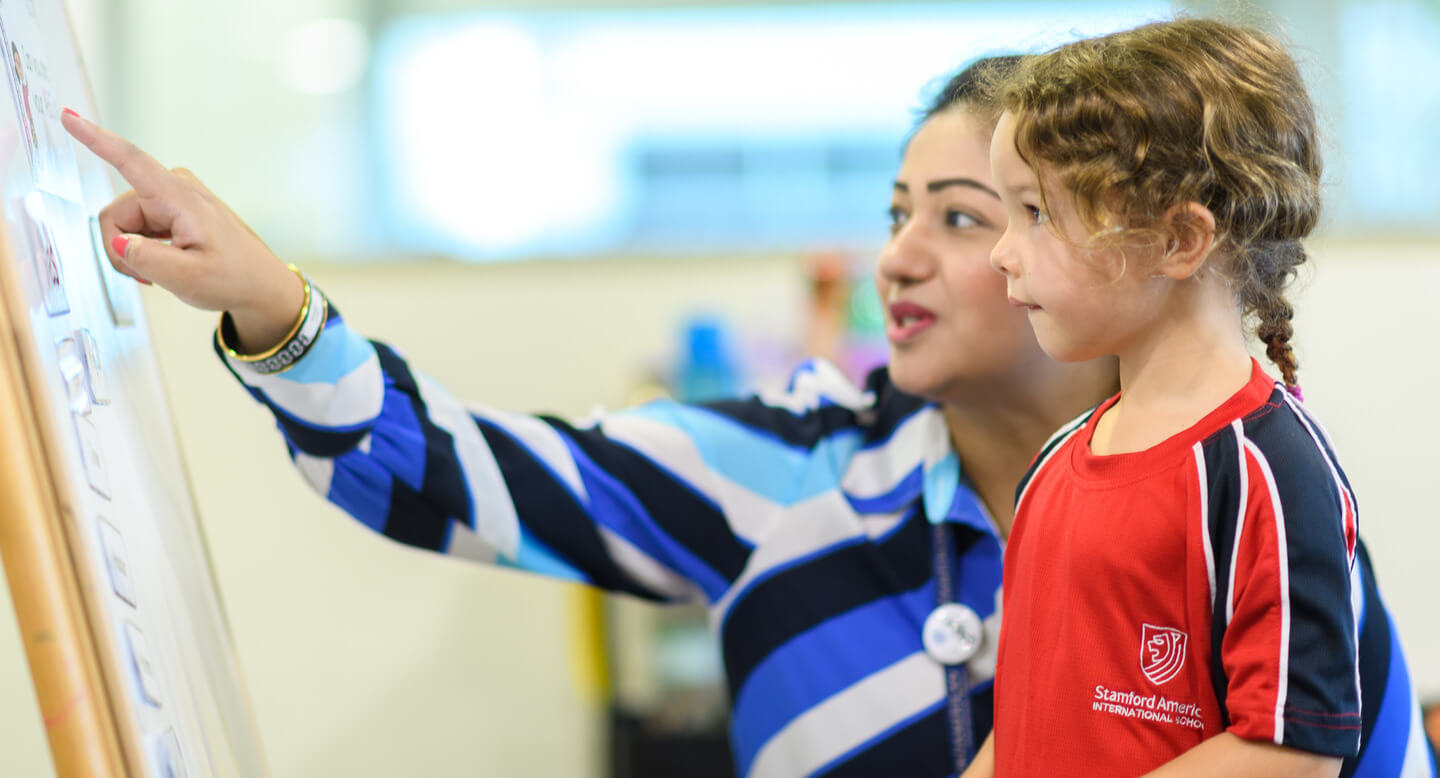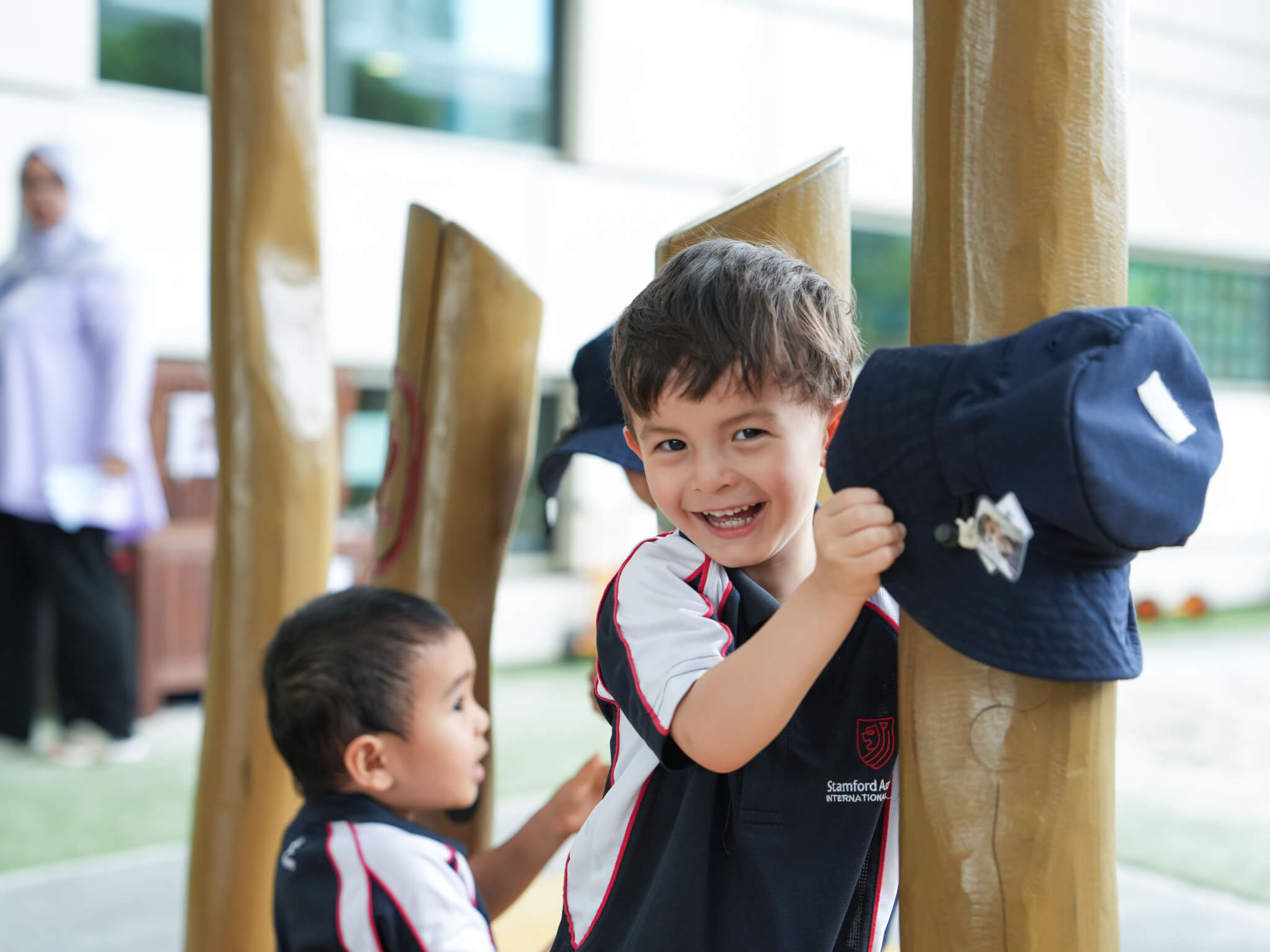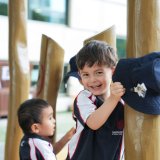In the early stages of life, the world brims with possibilities, and every experience becomes a new adventure. Education plays a vital role in shaping the minds and characters of young learners. This crucial phase, known as early childhood, goes beyond mastering ABCs and 123s; it is about nurturing curiosity and building a strong foundation for lifelong learning.
At Stamford American International School, we recognize the importance of this journey. Our approach to early education is not just academic; it is a holistic experience that supports every aspect of a child’s development. From their first steps into our vibrant Early Learning Village to their confident strides into higher grades, Stamford American students flourish in an environment that values individuality and fosters comprehensive growth. We believe that each child is unique, and their early education is key to developing essential life skills that will help them thrive in adulthood.
This article explores the essence of early childhood education, its diverse forms, and the significant benefits it offers. We will also highlight how Stamford American integrates these elements into our nurturing educational environment, providing a model of what quality early learning can look like. Let’s get started.

What is Early Childhood Education?
Early childhood education encompasses the vital years of a child’s life from birth to around eight years old. This period is marked by remarkable growth and development, and it is usually where children start learning foundational skills in the cognitive, social, emotional, and physical domains. Early childhood education goes beyond teaching basic academic skills like reading and writing; it aims to nurture a child’s natural curiosity, support their social interactions, and foster their emotional well-being.
In practical terms, early childhood education takes on many forms, ranging from formal preschool settings to informal learning experiences at home. In preschools and kindergartens, children engage in structured learning activities, play-based curricula, and meaningful interactions with peers and teachers. At home, early education unfolds through daily interactions, play, and exploration activities that parents share with their children. Both home and school environments are essential in supporting a child’s holistic development, with parents and educators working together as key partners in this journey.

What can Early Childhood Education look like?
Early childhood education encompasses a variety of teaching methods and educational philosophies, each tailored to meet the unique needs, interests, and developmental stages of young children. At Stamford American International School, we recognize that there isn’t a one-size-fits-all approach; instead, we embrace a range of methodologies that support each child’s growth. Some of the key approaches include:
- Montessori Method: Developed by Dr. Maria Montessori, this approach encourages child-led learning. Children select activities based on their interests and work at their own pace within a thoughtfully prepared environment, fostering independence and self-discipline.
- Reggio-inspired Approach: Originating in Italy, this philosophy emphasizes community and self-expression. It views children as capable and resilient, promoting collaboration among teachers, parents, and children as co-learners. In this approach, the environment is considered the “third teacher,” filled with opportunities for exploration.
- Waldorf Education: Founded by Rudolf Steiner, this method highlights the role of imagination in learning. It encourages creative play and holistic development, integrating arts and academics to nurture students’ intellectual, artistic, and practical skills.
- Play-Based Learning: A cornerstone of many early childhood education models, this approach emphasizes learning through play. It recognizes play as a natural way for children to explore, express themselves, and understand the world around them.
- Project-Based Learning: This method engages children in projects that allow for deep exploration of real-world topics. With a child-driven focus, teachers facilitate the learning process, making it both meaningful and relevant.
At Stamford American International School, we blend these methodologies to create a unique educational experience tailored to our international context. In our Early Learning Village, the curriculum is inspired by the Reggio Emilia approach, fostering a nurturing and student-centered environment where creativity, exploration, and interaction thrive. Our curriculum aligns seamlessly with the educational principles of both the Creative Curriculum (from Pre-Nursery to Pre-Kindergarten) and the International Baccalaureate (IB) Primary Years Programme (PYP) framework (from Kindergarten 1-2). This establishes our Early Learning Village as an ideal choice for parents in Singapore seeking an early childhood education that fits the IB framework.
We also recognize that early childhood education goes beyond the classroom. Our program includes a wide range of co-curricular activities, from language learning to physical education, ensuring that children receive a well-rounded educational experience. This comprehensive approach reflects our commitment to nurturing the whole child and preparing them for success in a globalized world.

What are some key benefits to Early Childhood Education?
Early childhood education offers numerous benefits that significantly influence all areas of a child’s development. Here are some of the key advantages:
- Stimulates Cognitive Development: Early childhood education creates a vibrant environment for cognitive growth. Engaging activities like puzzles and interactive games enhance problem-solving skills and help children grasp complex concepts, laying a strong foundation for future academic success.
- Provides Opportunities for Early Socialization: These formative years are crucial for developing social skills. Through interactions with peers and teachers, children learn essential skills such as cooperation, sharing, and empathy.
- Encourages Emotional Growth: Early education settings support children in understanding and managing their emotions. This emotional guidance fosters self-esteem and confidence, which are vital for personal development.
- Supports Healthy Physical Development: Integrating play and physical activities into early childhood education promotes the growth of both gross and fine motor skills.
- Serves as Preparation for Formal Schooling: Early education prepares children for the structure and expectations of a formal school environment. Children who enjoy their preschool experience are likely to transition to kindergarten and beyond with greater ease and confidence.
At Stamford American International School, we thoughtfully integrate these benefits into our Early Learning Village program. We believe that holistic development that your child can foster from the earliest levels equips them academically, emotionally and socially to thrive in their future educational endeavors.
In conclusion, while early childhood education has often been seen as optional or merely a stepping stone to higher learning, it is a unique and enriching period in a child’s educational journey. We at Stamford American International School are proud to guide our youngest students on this path. By providing exceptional learning experiences at every level, we strive to nurture new generations of curious, resilient, and adaptable learners ready for life in a complex world.










